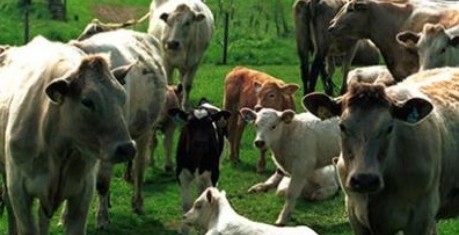Wednesday 29th May 2019, 1:00pm
Genetic selection and editing to remove errors may help to improve fitness of livestock populations, computer simulation suggests.

Deleterious variants occur when there are errors in DNA replication that disrupt the function of a gene. Such errors are frequent enough that all organisms carry mildly deleterious variants. This can cause both animals and people to develop for instance fertility issues that they wouldn’t have, had these errors not occurred.
This is particularly relevant to livestock populations because of their relatively small population sizes and inbreeding.
Future breeding strategies that select against deleterious variants may help to improve fitness of livestock populations, and techniques to edit the genetic make-up - known as genome editing - to remove those variants may improve it even further, computer simulations suggest.
"We tested selection against deleterious load as well as a genome editing strategy we call RAGE (Removal of Alleles by Genome Editing) in simulated livestock populations. Our computer simulations suggest that genetic selection could improve fitness and genome editing has the potential to improve it even more."
Dr Martin Johnsson, Researcher at The Roslin InstituteHistorically, it has not been possible to observe deleterious variants directly, but as genome sequencing becomes cheaper, and new bioinformatics methods are developed, it is now possible to sequence the entire genetic make-up of livestock and detect variants that are likely to be deleterious.
"Our simulations provide useful insights for future breeding strategies, however, for these strategies to be effective, it is important that detection of deleterious variants is accurate, and genome editing of more than one variant per animal would need to become possible without damaging side-effects."
Professor John Hickey, Chair of Animal Breeding, The Roslin InstituteThe study, which was funded by the UK Government’s Biotechnology and Biological Sciences Research Council, is published in the journal "Genetics Selection Evolution".
The Roslin Institute is part of the University of Edinburgh’s Royal (Dick) School of Veterinary Studies.
Source: The University of Edinburgh